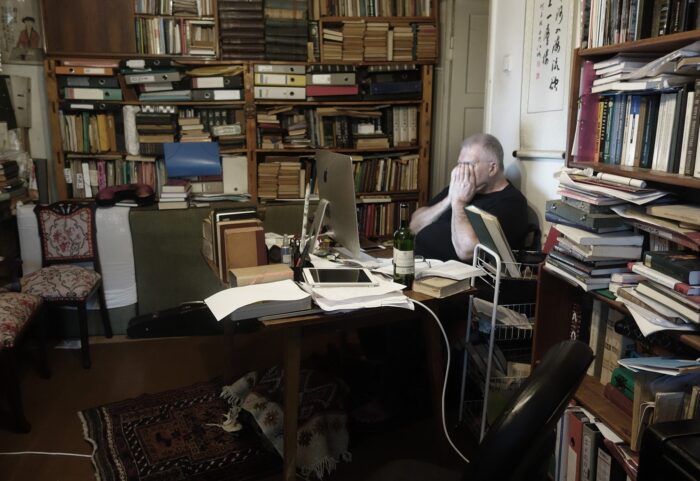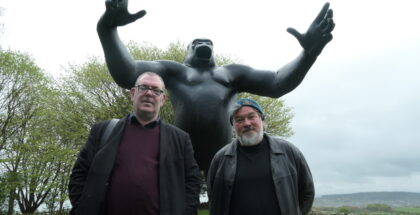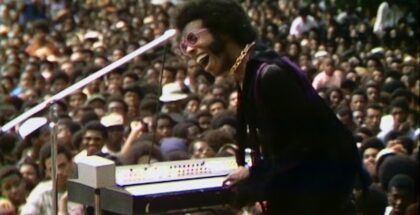Sheffield Doc/Fest film review: Constructions (Konstrukcijas)
Review Overview
Latvian poetry
8Gentle Introspection
7Constructed reality
7Laurence Boyce | On 24, Oct 2020
Sheffield Doc/Fest is going digital this autumn, with a string of weekend collections playing in cinemas and streaming online. For more information, click here
Constructions is a sprawling and meandering examination of Uldis Bērziņš, the Latvian translator and poet, and his family. Ostensibly set in his family home, built by Bērziņš’ great-grandfather, Ilona Brūvere’s documentary takes a languid approach to its subject, concerned less with an exhaustive account of the past and accomplishments of its chief protagonist and more with a careful account of the everyday life of him and his family. But while the latter approach would seem to make for a shallow portrait, it sometimes becomes a complex account of a man, his family and ever-changing times.
70 something Uldis lives his life in a crowded – though spacious – home, which also houses his wife Lena, daughter Una, her husband Ričards and their daughter. He potters about in his office and pores through his voluminous collection of books while working on a translation of El Cid or composing some more poetry. In and out weave his family and friends – Ričards works on music and soundscapes, his best friend Rokpelnis comes to visit for New Year or his granddaughter plays on the piano. But these moments are punctuated by more dramatic occurrences. His son Ansis Ataols Bērziņš faces a possible jail term after being extradited from the Czech Republic following his involvement in a political riot in 2009. Uldis’ health is slowly beginning to fail him, but he faces everything that life has with a quiet stoicism and a gently philosophical outlook.
It becomes hard to find a coherent through line in Constructions and it seemingly becomes a series of loose scenes and sections. Even the big moments – such as the drama surrounding his son Ansis and his potential spell in prison – come across as a series of vignettes rather than a grand, overarching narrative. But one suspects that is rather the point. The film reminds us that life is a series of moments that interact, that create drama from moments that initially may seem insignificant. In following Uldis and his family, we are reminded that individual threads go towards making a rich tapestry.
Indeed, the very title of the film seems to comment not only on the construction of Uldis family and their dynamics – and, physically, of Uldis’ house – but the construction of a documentary. Brūvere makes herself known via a series of onscreen emails in which she and Uldis talk about certain scenes for the upcoming film. She sometimes scolds him for not inviting her to important events and, at other times, enquires about his health and family. But they all point to the somewhat artificial nature of any documentary.
And let’s not forget about Uldis himself. His entire profession is about construction – the way in which language works, putting together words to promote understanding or evoke emotion. And, as it often is within former Soviet countries, the work of poets, novelists and artists would often help with the construction – and solidification – of a national identity that was always at threat from the Soviet regime. While Ulids cuts an unassuming figure in his everyday life, the moments of quiet introspection – “The East is West, The West is East,” he gently states in an understated plea for more understanding in the world – and the moments of him reading his poetry are some of the most powerful in the film.
While Constructions may prove of most interest to those who have at least a passing knowledge of the work of Uldis Bērziņš and runs the risk of sometimes feeling too slight, it still provides a gently fascinating into the life of an individual and the small moments of life that can make big waves.
Constructions is available to rent for £4 on Sheffield Doc/Fest Selects, or as part of a £12 pass for the Rebellions collection, until 11.59pm on 26th October 2020.




















